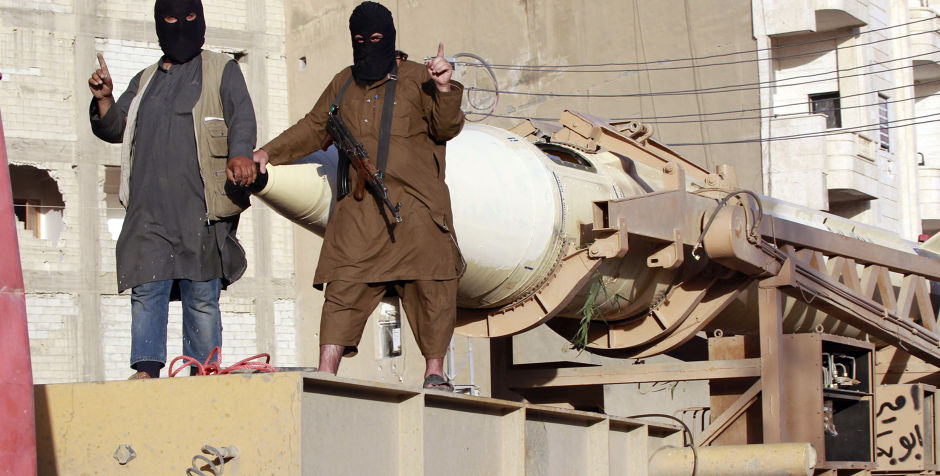Taliban Peace Deal was Not A Deal—Nor About Peace
President Trump decided over the weekend to cancel secret, direct talks with leaders of the Taliban, after yet another suicide bombing that killed another U.S. soldier. While the talks, scheduled for Camp David, were a secret—the efforts for a “peace deal” with the Taliban has been very public and going on for a year, led by special envoy Zalmay Khalilzad.
President Trump was right to cancel the talks, and further, to end all negotiations with the Taliban for the time being. For, in fact, these year-long negotiations have yielded no “deal,” and the Taliban continues to breech any semblance of peace. The proposed deal, which was thought to be in its final stages, would call for the reduction of U.S. troops in Afghanistan from 14,000 to approximately 8,600 troops within 135 days. In exchange, the Taliban would promise to host no terror groups in their territory. Additionally, U.S. forces would be almost completely withdrawn by the end of 2020, if the Taliban did three things: open talks in Kabul with the Afghan government; reduce violence in areas where U.S. troops are stationed; and keep foreign militants out of the areas they control.
So much is missing in these arrangements. Diplomats tend to never meet a negotiation they do not like. That can be good and bad; it’s a sword that cuts both ways. It can bring about peace and stability; it can also break with reality by substituting hope and promises for non-negotiable pledges. While Khalilzad, an Afghan-American, is to be commended for efforts to bring peace to this wild and war-torn country, his desire to reach almost any kind of deal that could be signed seems to have clouded his professional judgment. As the talks progressed, they looked more and more like the Paris Peace Talks to end the Vietnam war—where U.S. troops withdrew completely, the U.S. left with honor, and communist North Vietnam declared military victory and took over the entire country with violence and vengeance.
Despite the goal of the present peace proposal, the Taliban still refuses to recognize the sitting government in Afghanistan, led by President Ashraf Ghani, a former World Bank official and anthropologist who returned to Afghanistan after the U.S. military overthrew the Taliban government following the attacks of 9-11. The Afghan government, at the insistence of the Taliban, was not included in the peace negotiations.
While the talks have been ongoing, sixteen U.S. troops have been killed by Taliban forces. The Taliban controls more territory now than at any time since they were defeated in 2001-2002. In the areas they control, public floggings and summary executions have resumed. They oppose the education of women and girls. Western music and literature are forbidden. They say they will never recognize the current Afghan government or its constitution. Their plan is to reestablish the Islamic Emirate, the official name of their previous regime, where religious mullahs have the final say in all matters.
The proposed agreement states that the Taliban will not allow either ISIS or al-Qaeda to find sanctuary there. Yet, even as the talks continued, the Taliban allows both terror organizations to operate in the region, and they actually have a cooperative relationship with al-Qaeda in Afghanistan. Do we really think that the signing of a deal will cause the Taliban to keep its part of the agreement? Do we really want to trust the security of U.S troops in Afghanistan, to say nothing of the U.S. homeland, to the promises of a group like the Taliban?
Secretary of State Pompeo stated the stance of the Trump administration: “We’re going to walk away from a deal if others try to use violence to achieve better ends in a negotiation.” The editorial board of the Wall Street Journal rightly concluded that the Taliban “practice terror while they talk.” Not only will President Trump not be bullied, he will not allow the United States to be bullied.
The future of Afghanistan is uncertain. The role of the United States there is complicated and whether, and how long, we should remain there is open to debate. What we know is that the official government there is inept and corrupt, mimicking all prior modern Afghan regimes. The regime is propped up by U.S. tax dollars. We know that the Taliban has not changed its rabid ideology and penchant for violence. We know the country remains very tribal and the people are suspicious of the government in Kabul as well as acquiescent to the Taliban out of fear and repression.
No peace deal is better than a deal where the Taliban continues its religiously-based campaign of violence and terror that can reach American shores. As we solemnly commemorate the anniversary of the attacks of 9-11 this week, we must be alert and aware that the enemies of justice, freedom, and the United States are still at work. The Taliban has the blood of thousands of U.S. troops and civilians on its hands. In 18 years of war, we accomplished our initial missions in Afghanistan: we killed Osama Bin Laden, and we defeated al-Qaeda at its base at that time. The President wants to bring most of the troops home and perhaps deal with terrorism in Afghanistan with overwatch, air assets and limited Special Operations missions to deny terrorists safe havens and training camps. That can be done without a deal with the Taliban.
